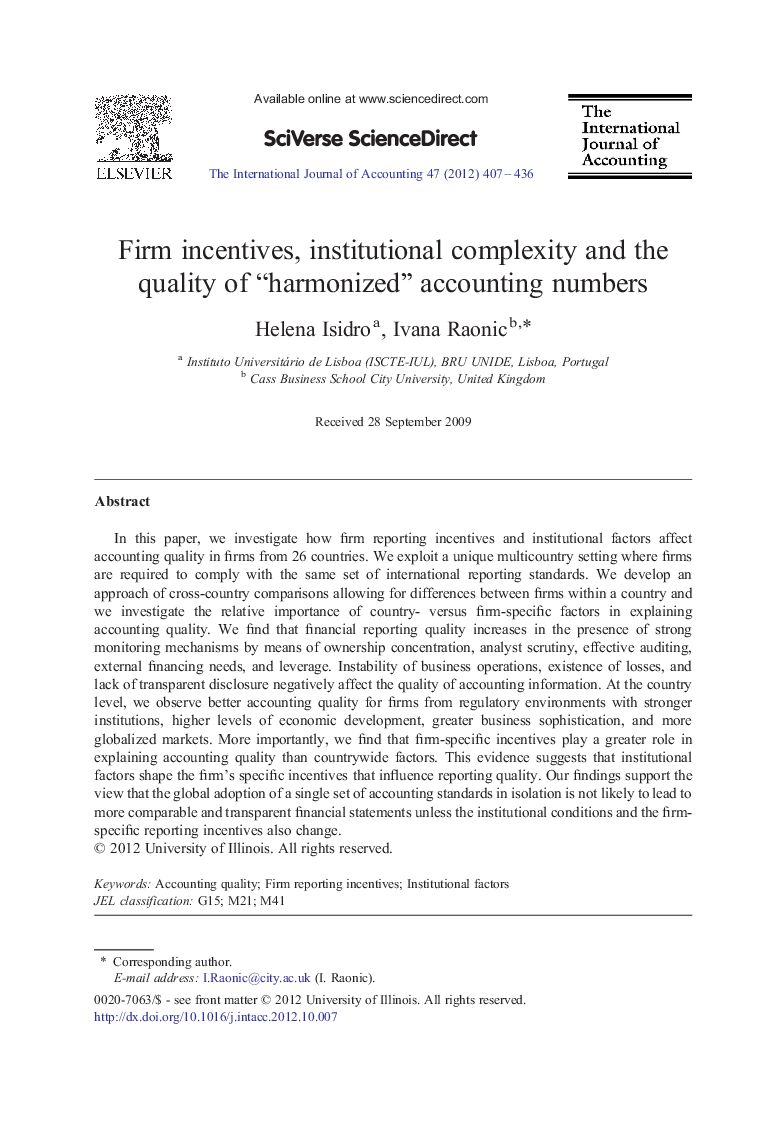| Article ID | Journal | Published Year | Pages | File Type |
|---|---|---|---|---|
| 1005129 | The International Journal of Accounting | 2012 | 30 Pages |
In this paper, we investigate how firm reporting incentives and institutional factors affect accounting quality in firms from 26 countries. We exploit a unique multicountry setting where firms are required to comply with the same set of international reporting standards. We develop an approach of cross-country comparisons allowing for differences between firms within a country and we investigate the relative importance of country- versus firm-specific factors in explaining accounting quality. We find that financial reporting quality increases in the presence of strong monitoring mechanisms by means of ownership concentration, analyst scrutiny, effective auditing, external financing needs, and leverage. Instability of business operations, existence of losses, and lack of transparent disclosure negatively affect the quality of accounting information. At the country level, we observe better accounting quality for firms from regulatory environments with stronger institutions, higher levels of economic development, greater business sophistication, and more globalized markets. More importantly, we find that firm-specific incentives play a greater role in explaining accounting quality than countrywide factors. This evidence suggests that institutional factors shape the firm's specific incentives that influence reporting quality. Our findings support the view that the global adoption of a single set of accounting standards in isolation is not likely to lead to more comparable and transparent financial statements unless the institutional conditions and the firm-specific reporting incentives also change.
